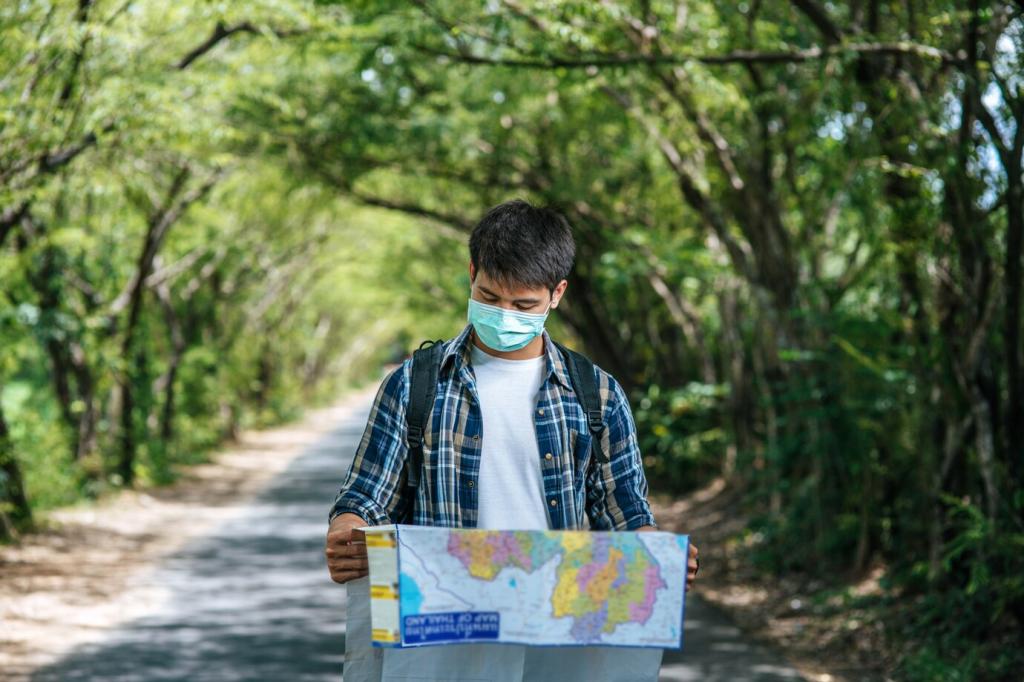
Choosing Eco-Tours for Low-Impact Vacations
Chosen theme: Choosing Eco-Tours for Low-Impact Vacations. Explore how to identify truly sustainable tours that protect nature, empower communities, and leave only gentle footprints. Join the conversation, ask questions in the comments, and subscribe for monthly field-tested tips on responsible adventures.



How to Research and Compare Eco-Tour Operators
Certifications and Transparency
Certifications are useful when backed by verified standards and published criteria. Look for detailed itineraries with clear transport modes, accommodation choices, and conservation partners named explicitly. Transparent pricing that shows community contributions or park fees builds trust. If documents are missing, request them—and share your findings with fellow readers.
Red Flags to Avoid
Beware of wildlife touching, baiting, or staged encounters; oversized groups; vague environmental claims; and motorized activities in fragile areas. If an operator discourages questions, downplays local customs, or rushes through sensitive sites, walk away. Comment below with any red flags you’ve encountered to help others choose wisely.
Questions to Ask Before Booking
Ask how guides are trained, how group sizes are managed, and what percentage of revenue supports local communities or conservation. Request carbon accounting for transport and lodging, policies for wildlife viewing distances, and emergency protocols. Invite operators to discuss improvements; genuine partners appreciate thoughtful travelers and often reward curiosity with transparency.
Wildlife Encounters Done Right
Follow local regulations and science-based guidelines for viewing distances, such as those promoted by conservation agencies. Keep voices low, avoid flash photography, and never block an animal’s path. A good operator models respectful behavior, monitors time at sightings, and leaves if animals show stress, ensuring your presence remains invisible.

Wildlife Encounters Done Right
Feeding, touching, or chasing wildlife disrupts natural behaviors and can cause injury or dependency. Choose tours that prohibit close contact and educate guests about ecological ripple effects. Share your commitment openly; your voice encourages peers to prioritize welfare over selfies and supports companies that put ethics before spectacle.
Community-Led Tours and Cultural Respect
Choose Community-Owned Experiences
Seek cooperatives, Indigenous-run guiding groups, and homestays managed by residents. These tours embed local knowledge in every step, from trail selection to storytelling, ensuring cultural integrity. Ask operators how decisions are made and who profits. Then share recommendations to amplify community-owned options for other readers.
Fair Work and Representation
Fair wages, safe conditions, and equitable representation—especially for women and marginalized groups—should be standard. Check if guides are salaried, insured, and credited by name. The stories we hear shape how places are remembered; ensure the narrators include those whose lives anchor the land you visit.
Learn Before You Go
Research customs, greetings, and dress norms. Ask permission before photographing people or ceremonies. A few phrases in the local language signal respect and open doors to real connection. Share your favorite cultural learning resources in the comments to help others approach new places with humility and care.

Getting There and Getting Around
Choose trains, buses, and ferries where feasible; when flying, pick nonstop routes and extend your stay to reduce flight frequency. On-site, consider bikes and walking tours. Good eco-operators coordinate efficient transfers and encourage slower travel rhythms that reveal subtler stories along the way.
Sleep Light, Stay Green
Prefer lodgings with renewable energy, water-saving systems, and waste reduction plans. Support locally owned stays that publish sustainability actions, not just aspirations. Opt out of daily linen changes, carry a reusable cup, and join beach or trail cleanups offered by your host when appropriate and community-approved.
Pack with Purpose
Pack fewer, durable items; bring a refillable bottle, repair kit, compact binoculars, and reef-safe sunscreen made with non-nano mineral filters. Avoid single-use plastics and heavy electronics that demand frequent charging. Share your favorite low-weight, multipurpose gear in the comments to inspire fellow travelers.
Budgeting and Timing Your Eco-Tour
A responsible tour may cost more upfront because it pays fairly, limits group sizes, and funds conservation. Consider lifetime value: better experiences, safer operations, and healthier ecosystems. Ask for detailed cost breakdowns and celebrate operators who disclose where your money makes a difference.
